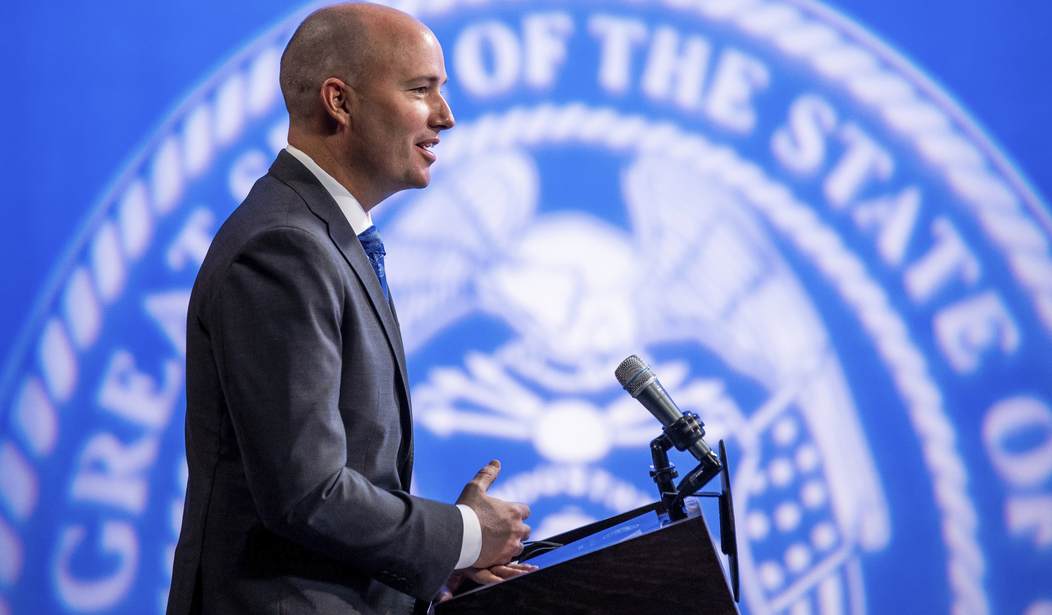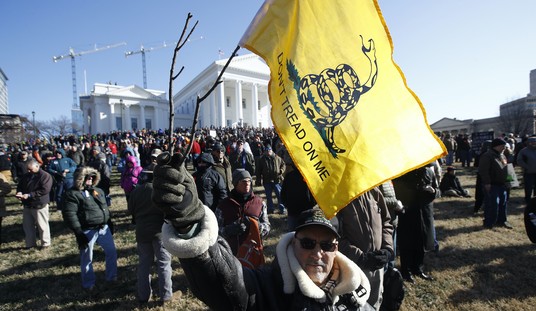The Salt Lake County District Attorney's Office is still weighing whether anyone should be charged for the death of a man taking part in a "No Kings" protest last month, but Utah's governor says he doesn't want to see any new restrictions placed on gun owners as a result of the shooting.
While Gov. Spencer Cox doesn't think it should be a crime to bear arms at a political demonstration, he did recently tell KSL.com that the organizers of the "No Kings" protest were warned that having armed "peacekeepers" on hand would be a bad idea.
Cox was asked about the fatal June 14 shooting that killed 39-year-old Arthur Folasa "Afa" Ah Loo and whether the state could have done more to prevent the tragedy during his monthly PBS Utah news conference.
"I don't know that there's more that we can do. We work very closely with organizations across the state, including No Kings," the governor said. "That was an absolute tragedy. I can tell you that they were warned months and months and months ago that it was a bad idea to have these 'peacekeepers' to be a part of what they were, what they were attempting to do and that it could lead to something tragic like this, and sadly it did."
Cox added that the Utah Department of Public Safety told the group that having armed people there would be a "bad idea." He said the conversation occurred "before they first started doing this," referring to several earlier demonstrations organized by No Kings.
"That was the conversation. Our DPS said: 'It's a bad idea. You can do it, it's not illegal, there's nothing illegal about it, it's just a bad idea,'" he said. "They said: 'Well, we think it's a good idea.' End of conversation."
... Twenty-six states have adopted laws that prohibit people from carrying long guns at state capitols and/or political demonstrations, according to Everytown for Gun Safety, a gun control nonprofit, but Cox said he doesn't think Utah should consider joining them.
"Again, I'm a big believer in the Second Amendment. I don't think it's something that we should consider," he said. "But again, I hope people will just be smart and responsible."
I'm glad to see Cox take that position, though it's also worth noting that there doesn't seem to be any huge outcry for more gun control laws among Utah residents in the wake of the No Kings shooting.
Are such bans even constitutional? Gun control advocates like Everytown Law's Eric Tirschwell think so. In a 2018 article for UCLA Law Review, Tirschwell argued that "a careful analysis of the relevant statutes and court decisions shows that state officials actually have broad leeway to pass and enforce sensible gun safety laws that prohibit, restrict, or punish the intimidating public display of firearms—without running afoul of the First or Second Amendments."
Another legislative option is to prohibit guns at demonstrations on public property. Alabama, for example, broadly prohibits the possession of a firearm at or near a demonstration. North Carolina and Maryland have similar laws, and Virginia considered enacting one after Charlottesville. Other states could do the same and follow the example of North Carolina, which recently enforced that state’s prohibition on guns at demonstrations by charging two protesters who brought guns to an anti-Klan rally. Such prosecutions are likely to withstand any Second or First Amendment challenges, consistent with state court decisions that have “long deemed it reasonable to regulate” “‘the carrying of deadly weapons [at a] public assembly, or in a manner calculated to inspire terror’” to avoid the “tragic consequences” that could result if demonstrators were permitted to “legally arm themselves” and “display their weapons for the purpose of imposing their will upon the people by terror."
The biggest problem with Tirschwell's argument (which pre-dates the Bruen decision) is that public demonstrations and the public spaces surrounding them aren't really "sensitive places." There may be a heightened law enforcement presence, but there are generally no special security precautions in place like magnetometers or restricted entrances and exits.
I'd argue as well that it's difficult to prove that someone is carrying with the intent of inspiring "terror", as opposed to protecting themselves. That's especially true when it comes to concealed carry, where the gun owner isn't displaying their firearm at all. Even when it comes to open carry, though, in a nation where keeping and carrying guns is a constitutionally protected right, the mere sight or display of a firearm shouldn't be enough to qualify as "inspiring terror".
The governor is right, though, about being smart and responsible when carrying at a demonstration. If "peacekeepers" are officially sanctioned by organizers of an event, those organizers could find themselves liable for any actions taken by their volunteer security. And those peacekeepers themselves are still subject to applicable laws on gun possession and defense of self or others. The Salt Lake County District Attorney's Office is still determining whether anyone should face charges as a result of the shooting at the No Kings protest, and if prosecutors believe that there was no reasonable fear of death or great bodily injury from Gamboa's actions they could very well be charged for Ah Loo's death.
Gamboa himself may end up facing charges. He was originally arrested on a murder complaint, which seems like a huge stretch to me, but it's possible he could be charged with something like brandishing a firearm if there are witnesses who say that he was holding his rifle in a threatening manner.
At the end of the day the basic rules of gun safety apply at a public protest just like they do in every other situation, including "don't point your gun at something you're not willing to destroy," and "be aware of what's behind your target." Those rules exist for a reason, and bad things can happen when they're not followed, regardless of whether or not a law is broken at the same time.









